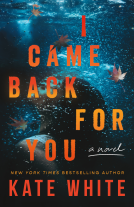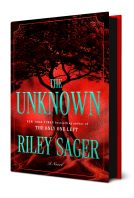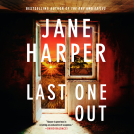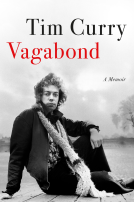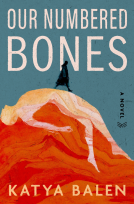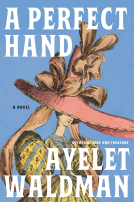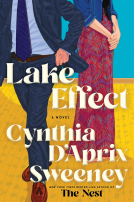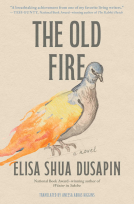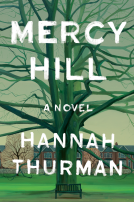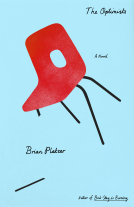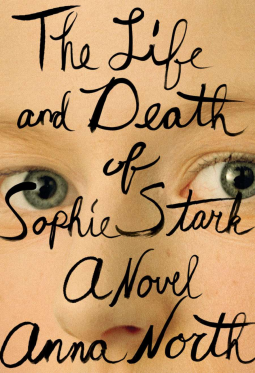
The Life and Death of Sophie Stark
by Anna North
This title was previously available on NetGalley and is now archived.
Send NetGalley books directly to your Kindle or Kindle app
1
To read on a Kindle or Kindle app, please add kindle@netgalley.com as an approved email address to receive files in your Amazon account. Click here for step-by-step instructions.
2
Also find your Kindle email address within your Amazon account, and enter it here.
Pub Date May 19 2015 | Archive Date Nov 29 2016
PENGUIN GROUP Blue Rider Press | Blue Rider Press
Description
Told in a chorus of voices belonging to those who knew Sophie best, The Life and Death of Sophie Stark is an intimate portrait of an elusive woman whose monumental talent and relentless pursuit of truth reveal the cost of producing great art. It is “not only a dissection of genius and the havoc it can wreak, but also a thunderously good story” (Emma Donoghue).
A Note From the Publisher
Available Editions
| EDITION | Hardcover |
| ISBN | 9780399173394 |
| PRICE | $26.95 (USD) |
Average rating from 82 members
Featured Reviews
 Media/Journalist 144784
Media/Journalist 144784
ARC for review.
Truly excellent book which is also a bit difficult to review. Sophie Stark is an original, a born film director and we meet her during her college years, but only track her life through the reminisces of others (her lover, her brother, her husband, a reviewer and others).
Using this style the author shows the reader that there is both everything to be learned about Sophie through this process, but also so much left unsaid. All told, Sophie makes only a few movies, none of which enjoy great commercial success, but that are widely heralded as genius, but what do we actually KNOW (even the name "Sophie Stark" isn't her own) and, how much do we need to know? Is it about the art, its creator or both? Sophie hardly lacks artifice - she is perfectly willing to lie and hurt those she loves to get the performances that she needs, and although the book is made of recollections of those who knew and cared for her in life, perhaps none of them "understood her - that is, I don't feel I know what she was thinking at any point in her life. This continues to worry me; when I watch her films now, I'm always looking for clues." For Stark's life, in its entirety IS the films.
Excellent, thoughtful read.
 Reviewer 224449
Reviewer 224449
I devoured this book. It hooked me right form the start, and I needed to know how it ended. One reviewer mentioned that it was "a negative portrait" or something to that effect, and that phrase stuck with me as I was reading this. It's a book about art, movies, not fitting in, about life and the impact we have on others. Told through magazine articles as well as conversations with people who knew her, Sophie Stark comes alive on the page. It's easy to see glimpses of yourself and those around you within the pages. The Life and Death of Sophie Stark is a gem, and I look forward to reading more works by this author.
 Elyse W, Reviewer
Elyse W, Reviewer
Fearless ...it claws into you with freshness and truth. This novel exposes the inner workings of the way people think about how they live, what they want, and what they believe.
Sophie and the other characters each live with emotional scars . The stories of each of these characters, richly interwoven, alternating narrators, slowly come together with haunting grace.
The author, Anna North, has created something very original here...(exquisitely written)
Leaving me to question....
Was Sophie's choice an act of unforgivable hubris, or generosity?
 Jamie C, Reviewer
Jamie C, Reviewer
I picked this book because of the title and skipped reading any blurbs and just read the first page--at least that was my plan. I very quickly found myself on my lunch break trying to devour as much of this book as I could. It reads like butter, if that were a thing--I mean to say Sophie's life is told with perfect flow changing from point-of-view between various people she affected. From broken childhoods to broken adulthoods Sophie carries the burden of being misunderstood and unconnected, while somehow being gifted with the ability to see people's vulnerable core. Quietly powerful, beautifully written, with characters you can see and feel The Life and Death of Sophie Stark should be on everyone's to-read list.
Pinterest- https://www.pinterest.com/LongDukDong/read-im-a-book-worm/
Tumblr- http://jamiecanaves.tumblr.com/post/115948477145/quietly-powerful-beautifully-written-with amazon review- will post when book releases
 Lauryn N, Reviewer
Lauryn N, Reviewer
My junior year of high school we were unfortunate in that we lost two students during the school year – a senior over Thanksgiving break and a junior over April vacation. In the week that followed those tragic deaths (one car accident, one skiing accident) the school put up large memory walls in the halls for everyone who wanted to be able to write their thoughts, prayers, and memories on to help with the healing process. Reading the upcoming The Life and Death of Sophie Stark by Anna North reminded me a lot of those strange days, trying to figure out what we were feeling and how to convey it particularly when the strongest memories of those lost are not always pleasant or comforting. Sophie Stark is a brutally honest examination of the idea that it’s the people we love most who can hurt us the most… and vice versa. Using a series of first person narratives from the people in Sophie Stark’s life that had the greatest impact on her life, the story begins in the middle with Allison explaining how she met Sophie and how the two of them fell into a relationship while making a movie. It is through film that Sophie feels the most connected to those around her, that she feels best able to communicate – unfortunately, she is willing to do whatever it takes to make her films the best they can be, even when the cost might be her personal relationships. Jumping back and forth in time from Sophie’s days in college through her final days, the characters and the reader are all left wondering just how much anyone understood Sophie.
Though Sophie is the central subject of the characters’ narratives, most of the people speaking about her were Sophie’s subjects when it came to the films she made. The stories she told were not really hers to tell so after her death, the tables are turned and they have their turn to tell her story as they see fit. There are suggestions that Sophie’s difficulties relating to the world at large were more than just being socially awkward or shy (the way she’s presented by several of the narrators made me think she might have some degree of autism like aspergers). Though not everyone would have experienced her level of frustration with the desire to be understood, it is something incredibly relatable along with the ways that Sophie inadvertently (and sometimes purposely) hurts those who love and trust her.
Most of the narrators were male and/or former romantic partners of Sophie, something I found a little odd. In fact, Allison is the only female voice the reader hears directly. She has more pages of narrative than any other character, and it’s true that in the novel Sophie doesn’t have a lot of friends, female or male. Some of the characters whose voices we heard felt out of proportion to the expected role they played in her life (the section narrated by Jacob, Sophie’s husband, is one of the shorter ones and takes up almost as many pages as George, a producer she knew briefly in LA) but by the end of the novel it all makes an unusual sort of sense. Despite the lack of female voices, one thing the novel did extremely well was its portrayal of the bisexuality of Allison and Sophie. It’s something that is just there. There’s a brief acknowledgement from Allison who hadn’t realized that she would ever want to be in that kind of relationship before meeting Sophie, but after that it is treated the same as any other relationship – which is wonderfully refreshing. Despite the fact that most of the narrators had romantic relationships with Sophie at some point, the book never feels like that’s what it’s about; it is about human connection and understanding – or misunderstanding. It also deals really well with Allison’s complex reaction to a traumatic event in her past and how that affected the person she became. I’ve had a difficult time with first person narratives in recent years (because there are so many, particularly in my favorite genres) but in the case of The Life and Death of Sophie Stark it works brilliantly. The characters’ voices aren’t as distinctive as someone like Kingsolver manages in The Poisonwood Bible but they work well for the story they’re telling. At times the individual sections felt a bit long (even with occasional small breaks). Only Allison and Robbie really pop up more than once as narrators though I would have liked to hear from some of the others again, particularly their reactions in the wake of hearing about Sophie’s death – which isn’t really a spoiler since it’s part of the novel’s title. Ultimately, The Life and Death of Sophie Stark is a novel that surprised me with how much I liked it. The Life and Death of Sophie Stark by Anna North will be available for purchase May 19, 2015.
There’s always a degree of remove between story and storyteller. Whether it’s a screen or a page or a stage or what have you, there’s always separation between the tale being told and the one doing the telling.
Anna North’s “The Life and Death of Sophie Stark” explores that divide by way of one of the most unconventionally fascinating characters in recent memory, a character whose story is told to us by those closest to her – though even their relative proximity still leaves them far away.
Sophie Stark is a young art-house filmmaker, the sort of person who can’t shake the sadness inherent to living in a world in which people are separated by manner in which they tell their stories. Even so, she soon discovers that the only way she can find connection is by embracing that distance – the world she sees through her lens is the only one that truly resonates with her.
The sad saga of Sophie Stark is laid out not by she herself, but by the people who came closest to knowing her. Her ex-lover Allison, who rose to prominence via her work with Sophie but was never able to maintain the personal connection she craved; her brother Robbie, who spent years trying and (mostly) failing to connect with his older sister, from childhood to college and beyond; her ex-husband Jacob, a musician who fell in love with her yet struggled against her mercurial attitudes regarding their more-or-less conventional relationship; and Daniel, the college basketball star who was the subject of Sophie’s first film and now struggles to define himself in life as clearly as she once defined him on film.
Each of these people has been overwhelmed in some way by Sophie’s presence; their lives have been irrevocably impacted by their connection to her. Their stories reveal not only the introverted genius of Sophie’s work, but also the difficulties she faced in finding a truthful connection without the buffer zone provided by her camera. There’s simply no overcoming the vast emotional chasm between her and everyone else. She can’t let anyone in, yet they can’t help but try. She changes everyone she encounters, yet no one ever succeeds in changing her – at least, not in the ways that she wishes to be changed.
It’s fascinating to read a story of someone’s life solely in terms of how it affected those around her. And make no mistake – this is the story of Sophie Stark, despite the fact that we never hear directly from her. Even with her impenetrable reticence, Sophie’s vivid complexity emerges through the exquisite tangles of her interactions. And the four primary narrators of Sophie’s story are richly realized in their own rights. Each of them is compelling not just due to their connection to Sophie, but because their own flawed lives are presented with clarity and honesty.
North has labored long and hard at the literary loom, weaving an intricate tapestry in which these disparate lives come together by way of the brilliant shooting star that exploded into their lives and out again, burning bright and far too briefly. North’s prose captures that feeling of fascination, that need to love and be loved by a person who can’t reciprocate that need. The book is filled with graceful phrases that leap out at the reader; sentences that demand your attention and linger long after the page has turned. It is a work of intelligence and empathy, provoking thought and emotion all at once.
“The Life and Death of Sophie Stark” basically begins with a lie – an untrue story told by Allison on the day she and Sophie meet – and that seems appropriate. When telling stories – particularly our own stories – truth can become a malleable thing. We tell the stories we wish to tell, stories which aren’t always (or even often) the stories that actually took place. So while this might not be the true story of Sophie Stark, ultimately, it is true enough.
